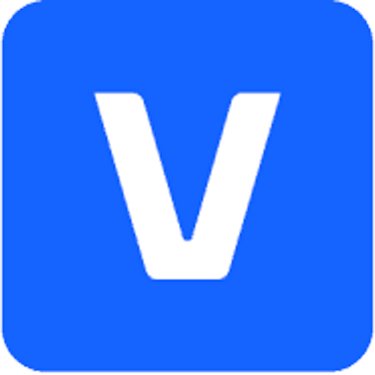In Depth: Audio Software & Plugins Glossary of Terms & Acronyms

The vast array of audio plugins and software available is mind-blowing, and they come with all sorts of formats and requirements with terms and acronyms that you may not be familiar with, especially if you mainly work with video or if you’re new to audio. Below, we’re breaking these terms down for you.
Audio Plugins & Software Acronyms & Terms Glossary
AAX
AAX, Avid Audio eXtension, is the exclusive Avid format and is natively supported since Pro Tools 11 (2013).
- AAX DSP – DSP-accelerated, compatible with Pro Tools|HDX. More about DSP.
- AAX Native – Compatible with any version of Pro Tools. More about Native Plugins.
ARA / ARA2
Developed by Presounus and Celemony Software in 2011, ARA, Audio Random Access, is an Audio Extension that allows plugins to exchange more information with the DAW and make the workflow faster and more seamless.[3]
Most of the popular DAWs are compatible with ARA 2, the second generation, including Apple Logic Pro, Steinberg Cubase and Nuendo, Avid ProTools, Magix Acid Pro, Samplitude Pro, and PreSonus Studio One. Plugins with ARA support or requirements include Melodyne, Antares Auto-Tune, VocAlign, Revoice Pro, Audio-Align Post 2, and iZotope RX.
ASIO Driver
ASIO, or Audio Stream Input/Output, is a sound card driver protocol mainly on Windows. Some plugins, such as Melodyne Editor, may require ASIO-compatible audio hardware on Windows.
AU
Audio Units, or AU, is Apple’s proprietary audio format that is part of the Core Audio architecture of the macOS. AU was developed for Logic and Garage Band, but other DAWs also use it on Mac.
CLAP
CLAP (CLever Audio Plug-in) is a new open extendable format under development by u-he and Bitwig Studio. This format supports fast plugin scanning and MIDI 2.0 protocol, unlike VST3. CLAP is said to take multi-thread management to a new level.[2]
Learn more about CLAP Audio Format
Core Audio
Core Audio is the digital audio driver of Mac iOS and OS X, and it supports audio plugins. More about Core Audio.
DAW
A DAW, Digital Audio Workstation, is your audio host application. Examples include ProTools, PreSonus Studio One, Reason Studios Reason
DSP
You may see AAX DSP listed in the system requirements of a plugin. DSP-based plugins rely on DSP chips, or Digital Signal Processor chips, which are third-party cards, which can get pretty expensive.[5] Plugins for DSP-based systems are also more expensive, however, users love the quality. If you have a DSP system, Native plugins still work. Some systems even allow users to switch back and forth between the DSP and Native versions of the same plugin.
iLok
iLok is a license management system for audio plug-ins. It allows users to move their licenses between computers. Not to mention, it protects your audio software from piracy. It uses a USB device, aka dongle, or the iLok cloud. Companies that use iLok are moving to iLok Cloud since most new computers do not have USB ports.
MIDI
MIDI stands for Musical Instrument Digital Interface. Developers create DAWs like Reason to work with MIDI keyboards, drum pads, and other MIDI controllers.[4] MIDI 2.0 is the current version. More about MIDI.
Native plugins
You may see AAX Native listed in the system requirements of a plugin. Native Plugins work with the computer’s CPU. In other words, they do not require any special dedicated hardware, such as DSP chips. Native plugins are mainly programmed with C++. This makes them usable over multiple platforms. There are a lot of native plugins on the market and are available for free. The downside: If you have a lot of plugins running at once, like with any NLE, your computer will start to slow down, and may grind to a halt.
RTAS
Real-Time AudioSuite, or RTAS, is a format used by Avid. RTAS is an obsolete format but you still may see it listed on some system requirements for older plugins, or Pro Tools versions 10.38 or before.[6]
VST
Steinberg originally created VST or Virtual Studio Technology. The plugins come in three types: VST Instruments, VST effects, and VST MIDI effects. VST3, the only version currently supported, has many perks over the previous versions. It consumes fewer CPU resources, handles MIDI data extremely well, and has multi-lingual support.[1] It’s worth mentioning, VST and VST2 plugins are being depreciated by many plugin developers and replaced by VST3
While VST is the most widely supported audio format, ProTools and Logic do not support VST plugins, as they use their own proprietary formats.
Are we missing any audio plugins terms or acronyms in our glossary?
If you are in need of an audio plugin that works in your NLE, there may be something available to suit your need. Feel free to contact us with questions!
References
- VST vs VST3: What’s the Difference, Crumplepop.com, JG McQuarrie, August 15, 2022
- CLAP Audio Plugin format, Martinic.com
- Audio Random Access, Wikipedia
- The Complete Guide to Choosing a MIDI Controller, Pro Audio Files on Demand, Philip Mantione, March 16, 2019
- Digital signal processing (DSP) explained, Soundguys.com, Robert Triggs, October 25, 2021
- What Are RTAS Plugins? (Explained Simply), Producer Hive
Posted by Michele






